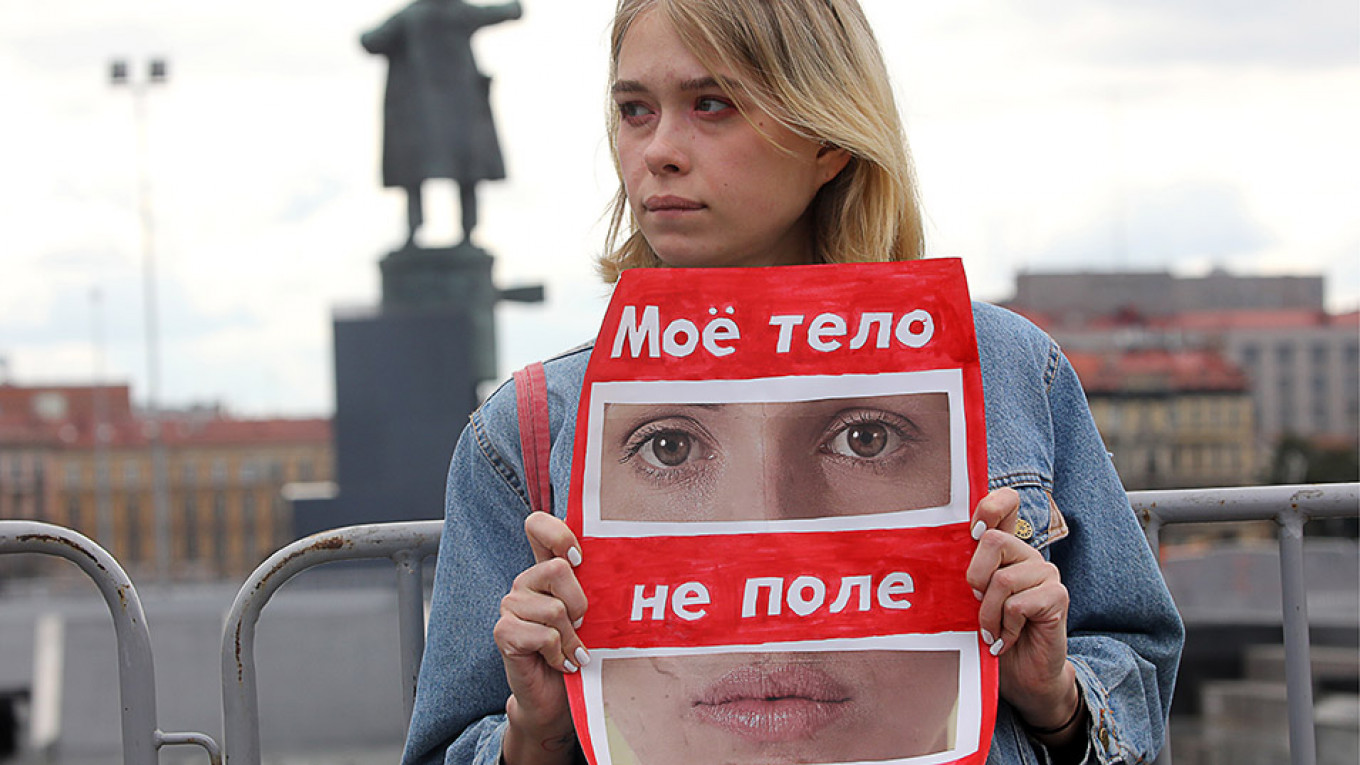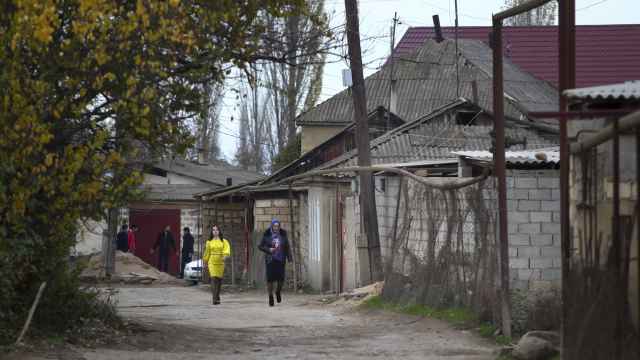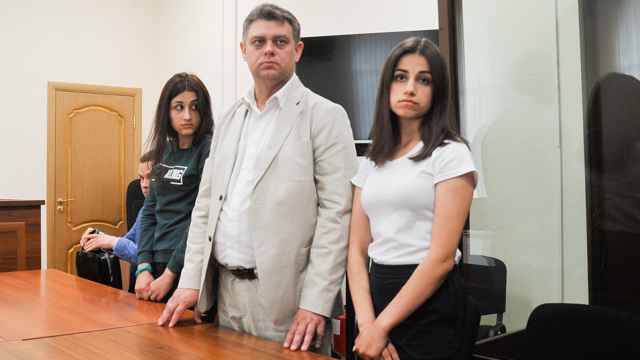The Russian government doesn’t see domestic violence as a “serious problem” and believes that its scale is exaggerated, the country’s Justice Ministry said in an official response to Europe’s human rights court obtained by the Kommersant business daily.
The European Court of Human Rights (ECHR) this summer had asked Russia to respond to questions regarding four cases in which women accused Russian authorities of failing to protect them from domestic abuse and discrimination. In its series of questions, the ECHR asked whether Russian authorities recognizes the extent and seriousness of domestic violence in the country.
While the government acknowledges that domestic violence “unfortunately exists in Russia, as in any other country,” the scale and severity of its impact on Russian women “are quite exaggerated,” Kommersant quoted the Justice Ministry as saying Tuesday.
The Justice Ministry document goes on to say that men, not women, are the unsung victims of domestic violence, adding that there is “no evidence” that the majority of victims in Russia are women.
“It is logical to assume that male victims suffer more from discrimination in such cases,” Kommersant quoted the ministry as saying. “They are in the minority, and they are not expected to ask for protection from abuse by family members, especially if they are abused by the opposite sex.”
The ministry also accused the four women of misinterpreting the situation with domestic violence in Russia and of trying to “undermine legal mechanisms which already exist in Russian law, as well as the government’s efforts to improve the situation.”
The remarks sparked widespread backlash on social media.
“The government believes that the need for living women is exaggerated,” one Twitter user wrote, while another said “The need for such a government is pretty exaggerated.”
The Justice Ministry later said that its comments were "taken out of context." Speaking to the state-run TASS news agency, the ministry also claimed that Kommersant's translations of its response from English into Russian were incorrect.
In February 2017, President Vladimir Putin approved a law to decriminalize most forms of domestic violence, downgrading punishments for first-time offenders.
Calls to re-criminalize domestic violence in Russia have intensified amid the high-profile case of three sisters facing murder charges for killing their abusive father, and after a 24-year-old historian was brutally killed by her romantic partner and former professor in St. Petersburg.
According to the independent Levada Center polling agency, nearly one-third of Russians have encountered domestic violence in their own families or among acquaintances. About 14,000 women die in Russia each year at the hands of husbands or other relatives, according to a 2010 United Nations report.
A Message from The Moscow Times:
Dear readers,
We are facing unprecedented challenges. Russia's Prosecutor General's Office has designated The Moscow Times as an "undesirable" organization, criminalizing our work and putting our staff at risk of prosecution. This follows our earlier unjust labeling as a "foreign agent."
These actions are direct attempts to silence independent journalism in Russia. The authorities claim our work "discredits the decisions of the Russian leadership." We see things differently: we strive to provide accurate, unbiased reporting on Russia.
We, the journalists of The Moscow Times, refuse to be silenced. But to continue our work, we need your help.
Your support, no matter how small, makes a world of difference. If you can, please support us monthly starting from just $2. It's quick to set up, and every contribution makes a significant impact.
By supporting The Moscow Times, you're defending open, independent journalism in the face of repression. Thank you for standing with us.
Remind me later.






